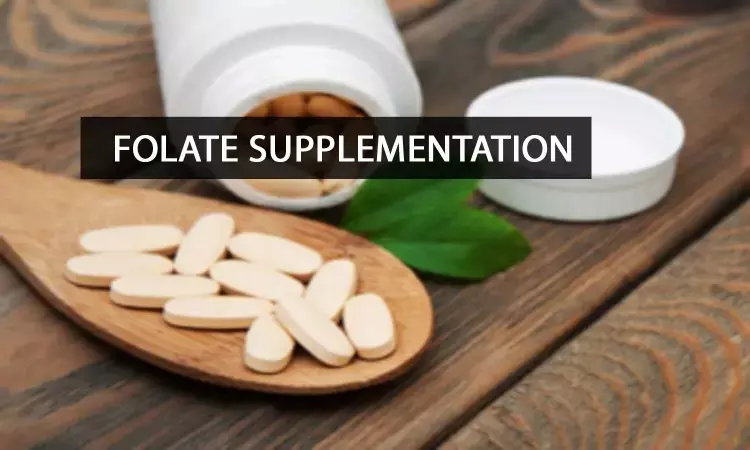- Home
- Medical news & Guidelines
- Anesthesiology
- Cardiology and CTVS
- Critical Care
- Dentistry
- Dermatology
- Diabetes and Endocrinology
- ENT
- Gastroenterology
- Medicine
- Nephrology
- Neurology
- Obstretics-Gynaecology
- Oncology
- Ophthalmology
- Orthopaedics
- Pediatrics-Neonatology
- Psychiatry
- Pulmonology
- Radiology
- Surgery
- Urology
- Laboratory Medicine
- Diet
- Nursing
- Paramedical
- Physiotherapy
- Health news
- Fact Check
- Bone Health Fact Check
- Brain Health Fact Check
- Cancer Related Fact Check
- Child Care Fact Check
- Dental and oral health fact check
- Diabetes and metabolic health fact check
- Diet and Nutrition Fact Check
- Eye and ENT Care Fact Check
- Fitness fact check
- Gut health fact check
- Heart health fact check
- Kidney health fact check
- Medical education fact check
- Men's health fact check
- Respiratory fact check
- Skin and hair care fact check
- Vaccine and Immunization fact check
- Women's health fact check
- AYUSH
- State News
- Andaman and Nicobar Islands
- Andhra Pradesh
- Arunachal Pradesh
- Assam
- Bihar
- Chandigarh
- Chattisgarh
- Dadra and Nagar Haveli
- Daman and Diu
- Delhi
- Goa
- Gujarat
- Haryana
- Himachal Pradesh
- Jammu & Kashmir
- Jharkhand
- Karnataka
- Kerala
- Ladakh
- Lakshadweep
- Madhya Pradesh
- Maharashtra
- Manipur
- Meghalaya
- Mizoram
- Nagaland
- Odisha
- Puducherry
- Punjab
- Rajasthan
- Sikkim
- Tamil Nadu
- Telangana
- Tripura
- Uttar Pradesh
- Uttrakhand
- West Bengal
- Medical Education
- Industry
Folate supplementation linked to reduced risk of Diabetes: Study

Recent research has reported that proper dietary Intake of folate in young adulthood to be inversely associated with diabetes incidence in midlife among Americans.
Researchers have published the findings in Diabetes Care.
A recommendation supported by the American Diabetes Association is for women with preexisting diabetes to consume 400 micrograms of folic acid daily if they are capable of becoming pregnant, and to increase their consumption to 600 micrograms of folic acid daily if they are pregnant or planning to become pregnant.
Previous studies have shown homocysteine is associated with a higher risk of diabetes. Folate, which reduces homocysteine, is promising for the prevention and treatment of diabetes.
Jie Zhu et al, associated with the Nutrition and Foods Program, Texas State University, had carried out a study to prospectively examine intakes of folate, vitamin B6, and vitamin B12 concerning diabetes incidence in a large U.S. cohort.
In this 30-Year Follow-up Study, researchers included a total of 4,704 American adults aged 18–30 years and without diabetes enrolled in 1985–1986 and monitored until 2015–2016 in the Coronary Artery Risk Development in Young Adults (CARDIA) study. Dietary assessment was conducted by a validated dietary-history questionnaire at baseline and The cumulative average intakes of folate, vitamin B6, and vitamin B12 were used assessed. Incident diabetes was ascertained by plasma glucose levels, oral glucose tolerance tests, hemoglobin A1c concentrations, and/or antidiabetic medications.
The results of the study highlighted the following facts.
ü During the study,655 incident cases of diabetes had occurred.
ü Intake of folate, but not vitamin B6 or vitamin B12, was inversely associated with diabetes incidence after adjustment for potential confounders.
ü Compared with the lowest quintile of total folate intake, the multivariable-adjusted hazard ratios (95% CI) in quintile 2–5 were 0.85 (0.67–1.08), 0.78 (0.60–1.02), 0.82 (0.62–1.09), and 0.70 (0.51–0.97; Ptrend = 0.02).
ü Higher folate intake was also associated with lower plasma homocysteine (Ptrend < 0.01) and insulin (Ptrend < 0.01). Among supplement users, folate intake was inversely associated with serum C-reactive protein levels (Ptrend < 0.01).
The researchers concluded that Intake of folate in young adulthood was inversely associated with diabetes incidence in midlife among Americans.
"The observed association may be partially explained by mechanisms related to homocysteine level, insulin sensitivity, and systemic inflammation" authors wrote.
For details log on to https://doi.org/10.2337/dc20-0828
Dr Satabdi Saha (BDS, MDS) is a practicing pediatric dentist with a keen interest in new medical researches and updates. She has completed her BDS from North Bengal Dental College ,Darjeeling. Then she went on to secure an ALL INDIA NEET PG rank and completed her MDS from the first dental college in the country – Dr R. Ahmed Dental College and Hospital. She is currently attached to The Marwari Relief Society Hospital as a consultant along with private practice of 2 years. She has published scientific papers in national and international journals. Her strong passion of sharing knowledge with the medical fraternity has motivated her to be a part of Medical Dialogues.
Dr Kamal Kant Kohli-MBBS, DTCD- a chest specialist with more than 30 years of practice and a flair for writing clinical articles, Dr Kamal Kant Kohli joined Medical Dialogues as a Chief Editor of Medical News. Besides writing articles, as an editor, he proofreads and verifies all the medical content published on Medical Dialogues including those coming from journals, studies,medical conferences,guidelines etc. Email: drkohli@medicaldialogues.in. Contact no. 011-43720751


